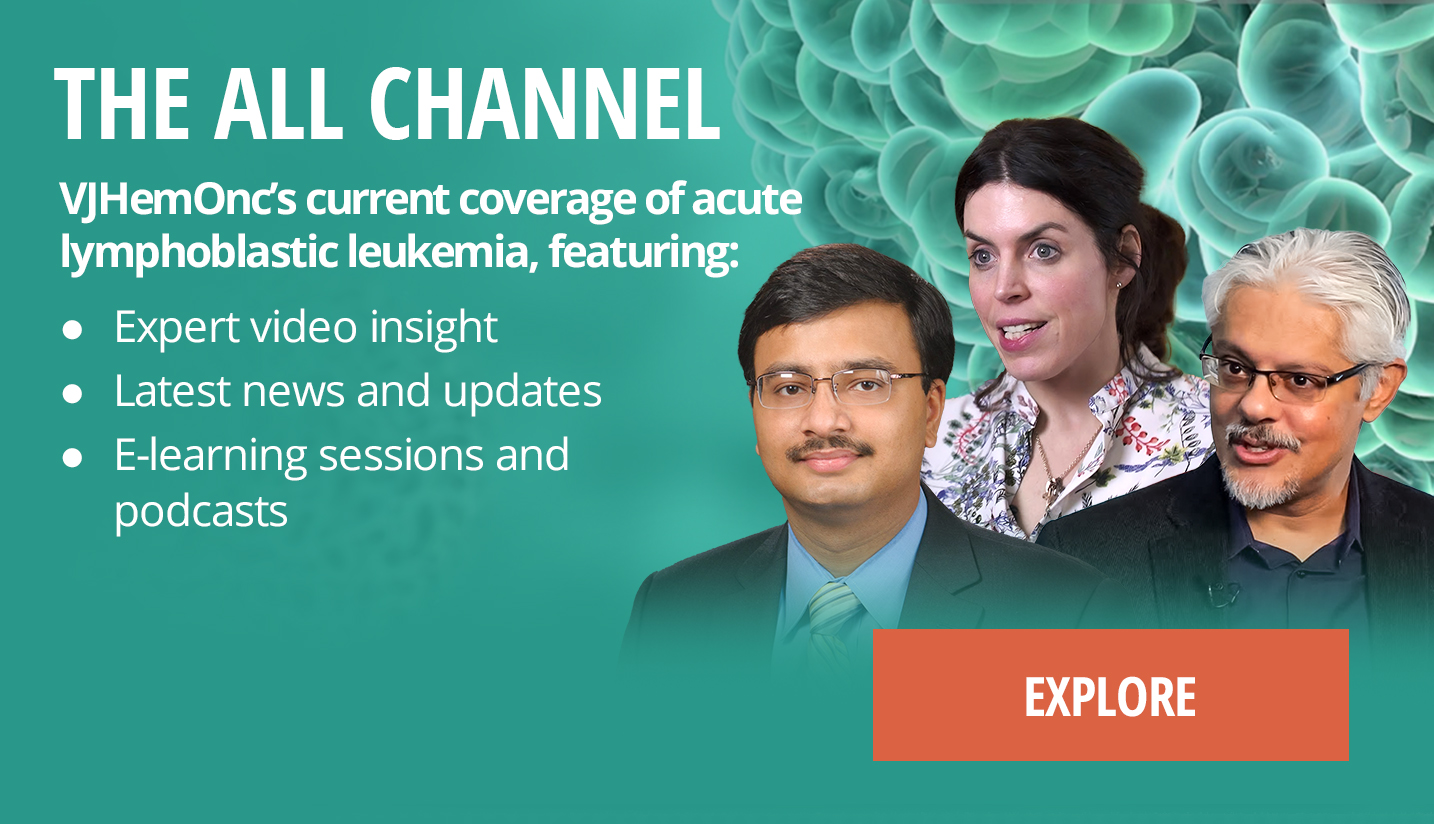I think that’s a very good question. So I think it’s easy for us to say, and some of us to say, that we have this access to these good resources about NGS and MRD, but I also do understand that not every place, even if you wanted to do it, that you might not be able to. So I think in those settings, I think you make the best of what you can do. So if you are able to, if you’re from those countries and able to at least refer to a center who are able to perform either their institutional MRD or able to send the samples to MRD to kind of a third-party, I do encourage them to kind of refer patients to those kind of special ALL specialized treatment centers, which is also true in the US too...
I think that’s a very good question. So I think it’s easy for us to say, and some of us to say, that we have this access to these good resources about NGS and MRD, but I also do understand that not every place, even if you wanted to do it, that you might not be able to. So I think in those settings, I think you make the best of what you can do. So if you are able to, if you’re from those countries and able to at least refer to a center who are able to perform either their institutional MRD or able to send the samples to MRD to kind of a third-party, I do encourage them to kind of refer patients to those kind of special ALL specialized treatment centers, which is also true in the US too. I know this is kind of a global community, but even in the US, that if, you know, that you may not, if you see very few ALL patients and MRD send out maybe a burden to the institutions or the place and may not have logistics in place. And others is more routine because they see hundreds of ALL patients per year. And, you know, it’s a very routine practice. So I think whenever possible, if you’re able to refer and the patients are able to travel, I think it’s highly encouraging and minimum just for bone marrow biopsy. Some patients have come to our centers just for bone marrow assessment for that reason for MRD, and they receive their regular care for chemotherapy or immunotherapy at their close-by centers too. So I think it’s possible and feasible to refer to. So if you don’t and are not able to have no access to those, I think you unfortunately have to make the best decision that you could do at the time. And some of the other analysis by flow may not get to the 10 to minus 4, but close to 10 to minus 3. I think that might be. I think because of that, sometimes in those centers that were not able to assess MRD are sending patients to bone marrow transplant because you have a no good way of knowing how deep of a response these patients might have gotten. So, you know, but I don’t think that’s anyone’s favorable approach to overtreat or send patients to transplant just because we’re not sure what type of response that you did have. So I think whenever possible to consult with treatment centers, or specialized centers, I think would be the best approach. And you may not need to do it for every single time point. But I think the critical time point at the end of consolidation, for example, when you’re at the really the fork of a decision-making transplant versus non-transplant or kind of intensifying the care, I think that time point, even if just a one-time referral consultation, that might be useful and make the critical decision for your patients.
This transcript is AI-generated. While we strive for accuracy, please verify this copy with the video.














